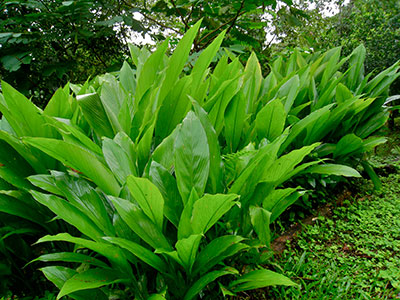Passive smoking isn’t only something that people have to cope with, but plants too. This is because some plants are actually able to take up nicotine from cigarette smoke, while others that grow in contaminated soil absorb it via the roots as well. This might explain why high concentrations of nicotine are often found in spices, herbal teas and medicinal plants, despite the fact that this alkaloid is no longer permitted in insecticides. These findings¹,² by Dirk Selmar and colleagues at the Technical University of Braunschweig, Germany.
Previously, nicotine was frequently used as an insecticide until it was banned in 2009 because of its toxicity. Surprisingly, a large number of food crops and plant-derived products still contain very high levels of nicotine. Selmar’s team wanted to find out whether there are other reasons at play than the possible illegal use of nicotine-containing insecticides.
They used peppermint plants (Mentha x piperita), which contain minimal traces of nicotine, in a series of mulching and fumigation experiments. “Tremendously elevated nicotine levels were detected after fumigation with cigarette smoke,” notes Selmar.
Selmar’s team is also the first to show that peppermint plants can actually take up high concentrations of nicotine from contaminated soils. This follows the analysis of plants mulched with cigarette tobacco for more than nine days. The resulting nicotine concentrations are several times higher than the maximum residue level set by the European authorities. The research reveals, for the first time, that the reported high levels of this substance may indeed originate from tobacco.
The researchers found a drastic decrease in nicotine concentration as time progressed. This is likely because the nicotine is taken up by the roots of the peppermint plants and processed in their leaves.
“Our results suggest that the widespread occurrence of nicotine in medicinal, spice and food plants may, at least in part, be due to other nicotine sources apart from the illegal use of insecticides,” says Selmar.
In addition to the significance for the food industry, these results have a tremendous relevance for basic science: they prove that substances, such as alkaloids, can be transferred from one plant, after its death, to another.
Source: science daily
N.H.Khider

